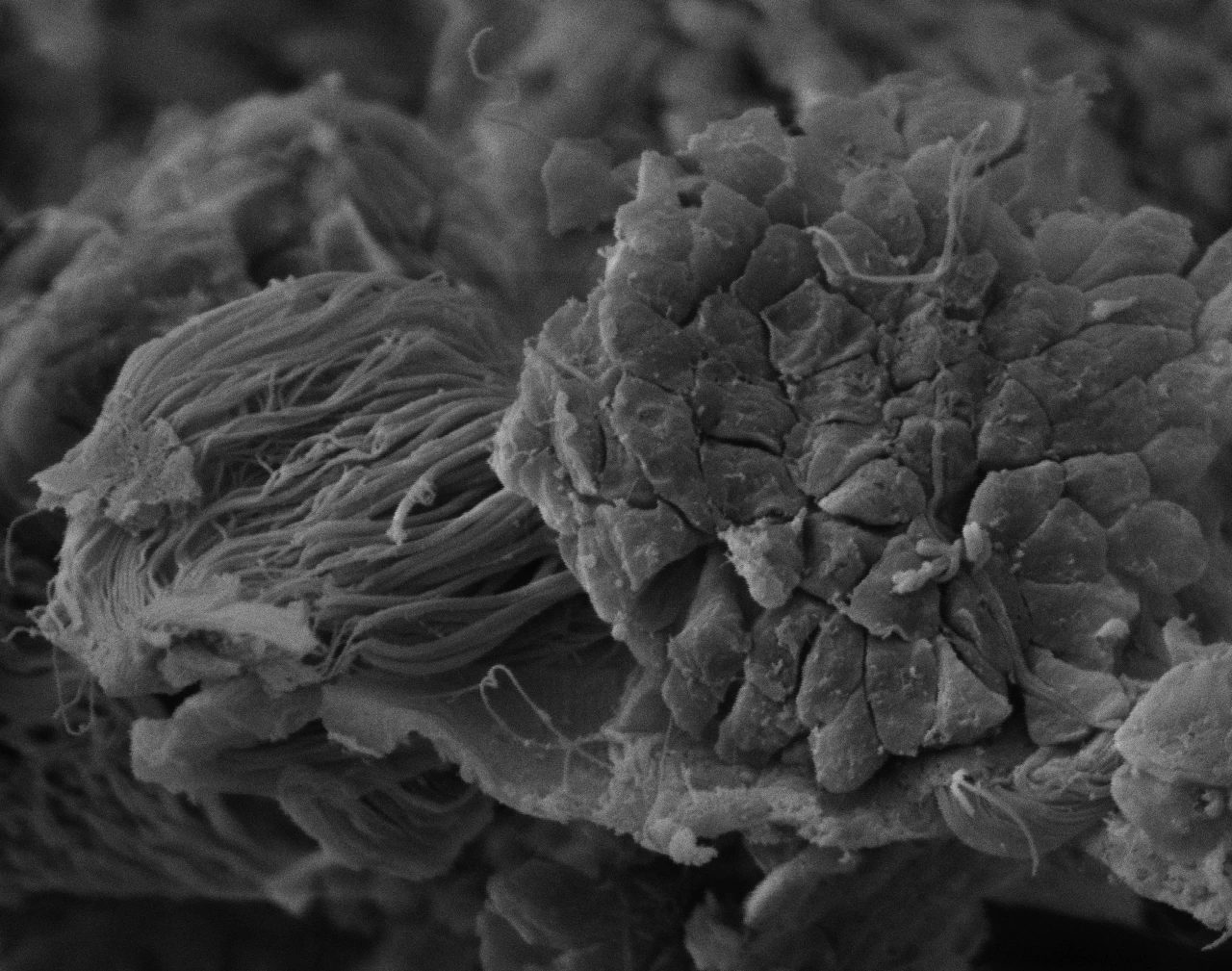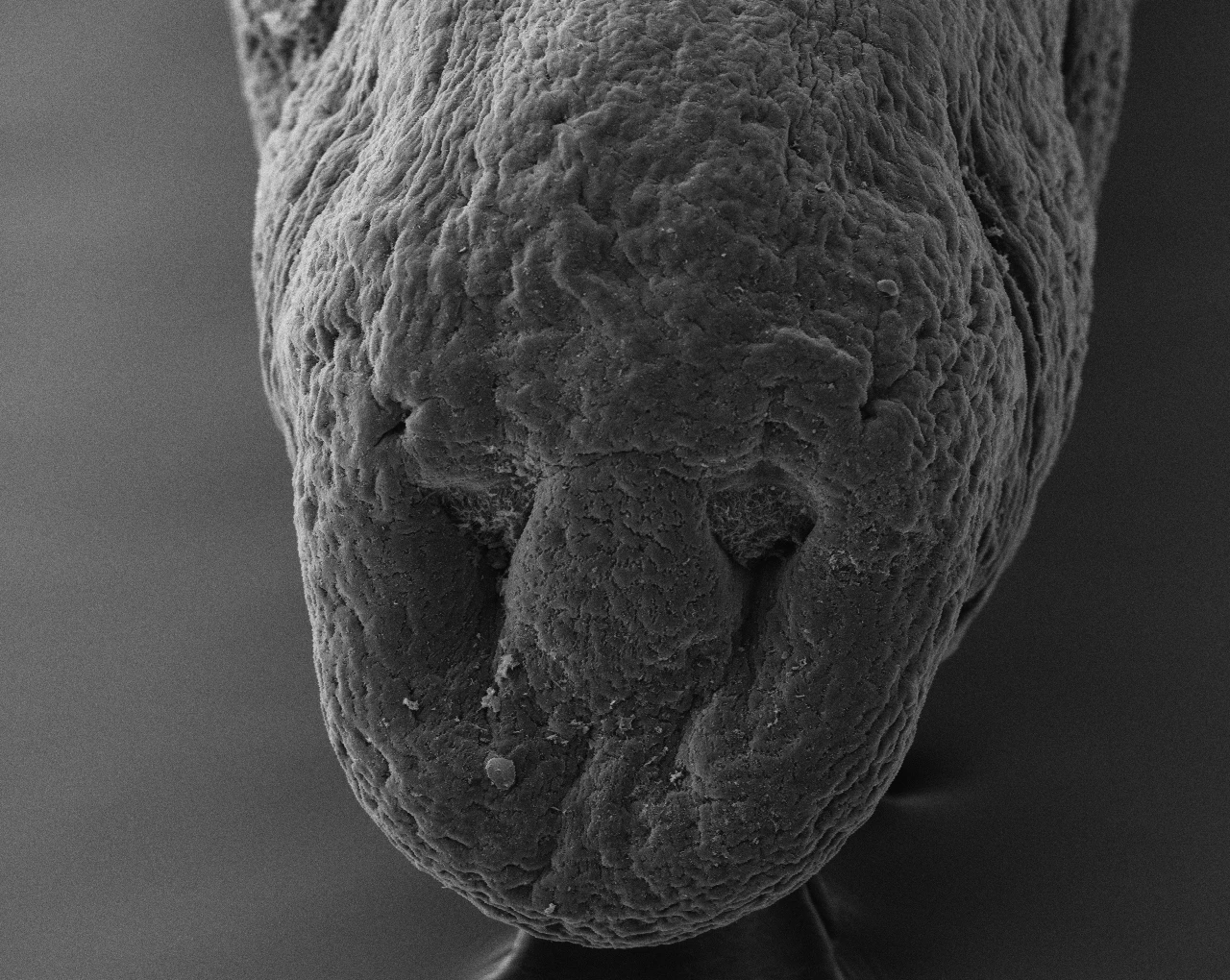A species new to science!
, 5 July 2013
The first results and new species have now been published from the project on the Polychaetes of the Falkland Islands. The project, which started in 2011, intends to document the polychaetes (marine bristleworms) of the intertidal region around the islands, information that will help inform marine environmental work and improve future identification of the group in the area. Further details of the project can be found in a Rhagor article here and earlier blogs here that documented the fieldwork.
The new species, Micromaldane shackletoni, was named in recognition of the Shackleton Scholarship Fund who support the work. The species is of particular interest as it is a simultaneous hermaphrodite, which means that it produces eggs and sperm at the same time that fertilise internally. The larvae are then brooded inside the animal's tube until they are large enough to leave and build their own tube. This method of reproduction has only been reported once amongst other species in the same genus. To document the stages of reproduction involved using a scanning electron microscope to look in detail at the eggs and sperm (see photo) from inside the body, the developing larvae and other structures on the adult bodies (see photo of head). Animals are only 0.3mm wide and around 11m long. The species description and details have been published in the scientific journal Zootaxa.
Teresa Darbyshire

